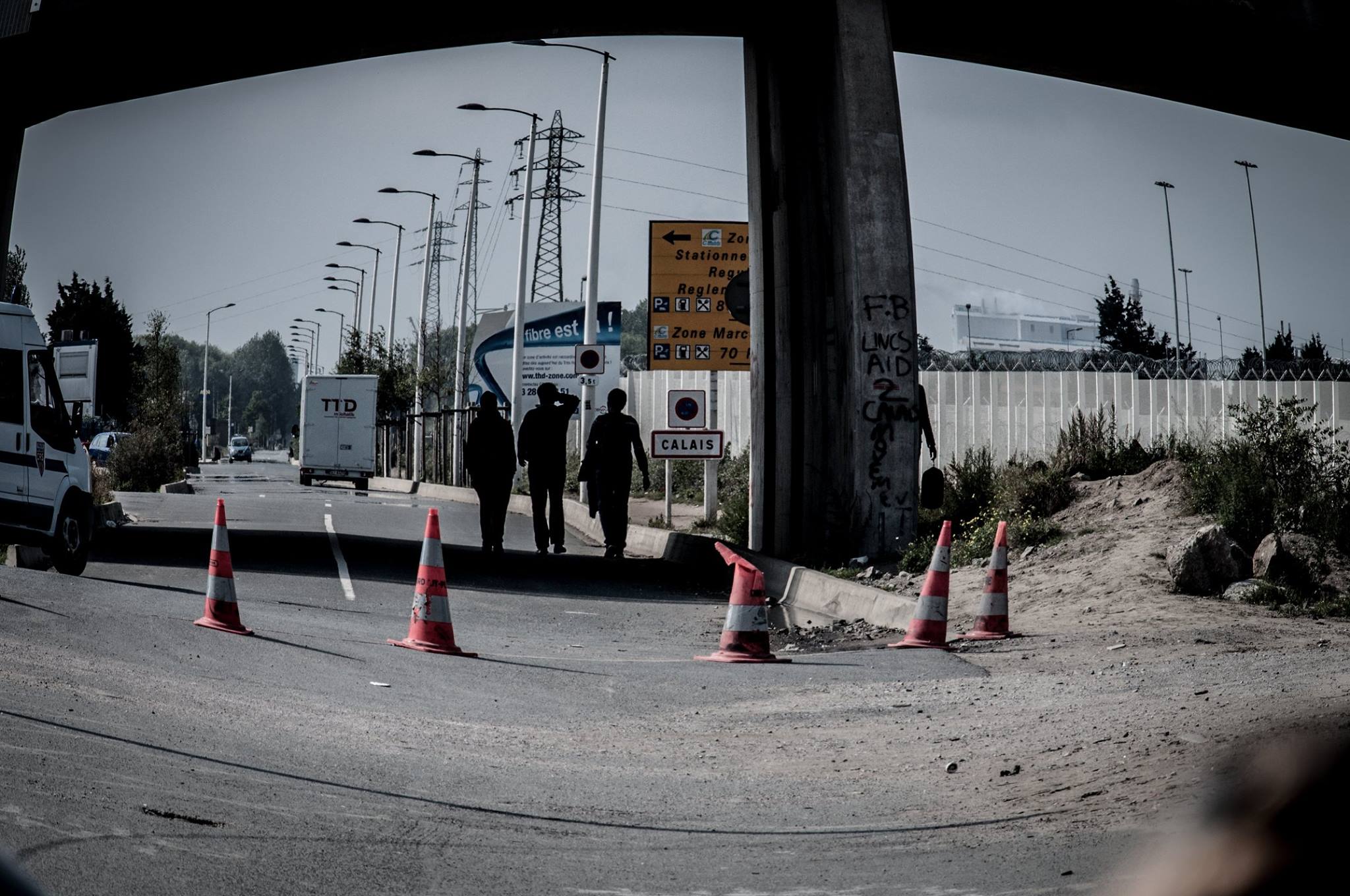The asylum crisis in northern France has never been more urgent since 2016. Crossing attempts across the Channel are more numerous than in recent years and the living conditions of migrants in the dunes of Calais and Dunkirk are deteriorating every day. Aid organizations are now jointly sounding the alarm. “The situation has not been this serious in a long time.”
The streets of Bray-Dunes in Northern France look deserted. The rows of imposing facades of dilapidated 19th-century villas are interrupted here and there by the lowered iron shutters of closed cafés and shops. Although the bells of the neo-Gothic church tower have only just struck twelve, some fishermen are already queuing at the local chip shop.
The desolate impression of the seaside town contrasts sharply with the hustle and bustle around the local gendarme station. Groups of officers walk in and out. A patrol car leaves the parking lot and then drives through the center of the village to the dunes. Three police officers in camouflage outfits get out of the car a few dozen meters from an old bunker. They peer at the beach and the turbulent sea with binoculars. Their mission: to stop migrants crossing the Channel in boats. But today the sea seems too rough. The officers will be on lookout for several hours, in the freezing sea breeze. “But it is necessary that we patrol here.” says the youngest of the three, “another crossing attempt took place here last week.”
1000 people in 19 rickety boats
The northern French coast has been a gathering place for migrants wanting to cross to the United Kingdom for about ten years. Calais, a few dozen kilometers from Bray-Dunes, was home to the largest refugee camp in Europe for a long time. The jungle, from the Pashto word ‘dzanghal’ meaning forest, with its ten thousand migrants became a symbol for the European refugee crisis and political powerlessness in France.
The French government closed the camp in the fall of 2016 and dispersed the migrants to various reception centers across the country. We collaborated with various NGOs to provide temporary housing, support and legal assistance. But the same aid organizations are now sounding the alarm. They are once again seeing a huge increase in migrants on the northern French coast. On November 12 and 16, almost 1,000 people risked the crossing in 19 rickety boats. Several thousand migrants are also said to be staying in the wooded hinterland in Calais and Dunkirk, often with only a tent as shelter. The majority wait here until spring to cross a calmer North Sea. But with winter approaching, a humanitarian disaster threatens.
“The situation has not been this serious in a long time,” said Pierre Roques, coordinator of the aid organization L’auberge des Migrants. He receives us in an old department store on the outskirts of Calais where dozens of French and British volunteers are busy preparing for the winter. They chop wood, which can be used by the migrants for heating, and triage donated clothing and camping equipment. Roques explains that in previous winters, local government officials provided emergency shelter for families and unaccompanied children. But this winter, shelter won’t be available to everyone. “Many have been forced to sleep out in the open in mud, in freezing conditions.”
Roques began his engagement during the last months of the jungle. “That camp was a real slum. But at least people had a place to stay,” he sighs. In recent months, the organization has found it increasingly difficult to continue helping the growing number of migrants. “We are working with all our might to provide food, drinks and tents. But without government support, it is like flogging a dead horse.”
In an improvised industrial kitchen at the back of the department store, seven enormous cooking pots are simmering on the fire. Every day, hot meals are delivered to several distribution points in the region, with the help of the French Red Cross. At one of these points, behind the port of Calais, five hungry migrants are waiting in the pouring rain for their turn. Shoaib (*not real name), a young man from Pakistan, thanks the volunteers with a smile. His torn poncho is soaked, and he only has sandals on his feet. When we ask him whether he will risk the crossing before winter, he nods eagerly. “I can’t stay here. There is only misery here,” says Shoaib in broken English.
Axel Gaudinat of Utopia 56, an aid organization that was founded after the clearance of the jungle, also agrees that the situation is dire. “The living conditions of migrants are continuously deteriorating and we have no solutions.” Gaudinat explains that the absence of a reception camp makes access to basic services difficult. “Our goal used to be to provide people with shelter. Now we are doing our utmost to provide them with sufficient drinking water.” Some volunteers are said to have seen migrants forced to drink seawater in recent days.
Gaudinat argues that the French government has shifted its policy from relief to repression. In October, French police cleared a temporary camp of about 700, mainly Sudenese, refugees. The same camp had also been evacuated in May and June. The human rights organization Human Rights Observers then critically stated that these actions are mainly intended to exhaust people by constantly moving them. “The quality of life of the people here is no longer the priority.” Says Gaudinat.
Militarization of the coast
The UK and France signed an agreement this summer to tackle illegal migration across the Channel. The two countries agreed on a joint multi-year operational plan and financing arrangement. “Here we see that the militarization of the coast has increased,” says Roques of L’Auberge des Migrants. The CRS, a special mobile French police force, patrols the forested coastline daily. High-tech drones and an aircraft from Frontex, the European border control, watch from the air. The increased police force creates a cat-and-mouse game, causing the migrants to scatter and no one has insight into the situation. “A harsher, inhumane approach is not the answer. People just want to go to the United Kingdom, and that will continue to be the case,” says Roques, “You can’t put a police officer on every corner, can you?”
The cry for help from the aid organizations seems to have brought little movement so far. In France, stricter immigration legislation is on the political agenda, which French President Emmanuel Macron wants to have approved by the Chamber of Deputies in the coming weeks. At the time of writing, no additional government support has been provided to the aid organizations. A week after our visit to Northern France, 27 more women, men and children drowned in the Channel.



